Clinical nurses are the backbones of the healthcare system. Without them, hospitals would not be able to provide the highest level of patient care for those who need it most. That’s why these exceptional nurses deserve to work and thrive in the best healthcare facilities available: Magnet hospitals.
Magnet-designated hospitals are some of the most highly-regarded healthcare systems in the world, and many nurses strive to be a part of this elite group. The American Nurses Credentialing Center (ANCC) recognizes these healthcare organizations for their exceptional, professional nursing practice, excellent patient outcomes, and continuous professional development.
So what exactly is a Magnet hospital? What do these facilities have to offer that non-Magnet hospitals don’t? And, how do hospitals achieve their Magnet designation? This blog post will answer all of these questions and provide tips to help your hospital receive Magnet designation.

What Is a Magnet Hospital?
A Magnet hospital is a medical facility that has achieved the highest level of nursing excellence as recognized by the American Nurses Credentialing Center (ANCC). In addition to providing superior patient care, Magnet-designated hospitals use the latest nursing practice methods and technological innovations for better patient outcomes, nurturing nursing talent and ensuring the highest quality of care.
These Magnet organizations also promote nurse empowerment by continuing nursing education, fostering a collaborative culture among nurses, and involving Magnet nurses in critical decision-making processes. They also enrich clinical knowledge, values, and experiences, helping Magnet nurses flourish and promoting nursing excellence.
Because of these factors, at most Magnet hospitals, hospital nurses feel valued and respected, which leads to improved job satisfaction, better nurse outcomes, and lower turnover rates. Nursing jobs at Magnet hospitals became lucrative and rewarding roles. Many nursing professionals aspire to work in Magnet hospitals, and many new graduates dream of working at a Magnet-designated hospital as their first nursing job.
Interestingly, some critics believe that nurses who work at hospitals with Magnet recognition have similar levels of job satisfaction and nurse empowerment as those in non-Magnet organizations. They also question Magnet hospital recognition for being challenging to attain and lasting for four years.
However, several studies, including a 2020 American Journal of Nursing study, examined how Magnet hospitals affects patient, nurse, and organizational outcomes. In this study, researchers found that most Magnet hospitals have lower rates of nurse burnout, shortages, turnover, and job dissatisfaction than non-Magnet hospitals. There were also lower rates of patient falls, mortality, pressure ulcers, and hospital-acquired infections.
Additionally, a Gallup survey showed that the average job at a Magnet facility encounters 7.1% fewer safety-related incidents and considerably lower rates of nursing staff injuries and blood and body fluid exposure. It also found that Magnet facility nurses are more engaged, have better job satisfaction, and are more likely to stay in their current roles, all of which improve patient outcomes and the overall success of the healthcare facility.

How Did the Magnet Recognition Program Start?
The idea for the name came from a 1983 American Academy of Nursing (AAN) study that analyzed healthcare organizations to determine commonalities for success, nurse retention, and patient satisfaction. The study identified 41 out of 163 healthcare facilities that were attractive and successful.
In June 1990, the American Nurses Association (ANA) introduced the American Nurses Credentialing Center (ANCC) as a subsidiary nonprofit organization that offered credentialing programs and services. In December 1990, the ANA Board of Directors established the Magnet Hospital Recognition Program for Excellence in Nursing Services — basing the name on the “attractive” feature of the hospitals in the 1983 study.
The ANCC identifies distinct characteristics, now known as the “Forces of Magnetism,” that these healthcare organizations possess.
The 14 forces includes:
- Quality of Nursing Leadership
- Organizational Structure
- Management Style
- Personnel Policies and Programs
- Professional Models of Care
- Quality of Care
- Quality Improvement
- Consultation and Resources
- Autonomy
- Community and the Healthcare Organization
- Nurses as Teachers
- Image of Nursing
- Interdisciplinary Relationships
- Professional Development
The Magnet program soon expanded and recognized long-term care facilities and healthcare organizations outside the country. It officially became the Magnet Recognition Program in 2002.
As of January 2023, the ANCC acknowledges 608 Magnet facilities, including 595 Magnet hospitals in the United States and 13 magnet hospitals outside the country.

What are the Benefits of Magnet?
To obtain Magnet hospital status, healthcare facilities must undergo a rigorous process involving several steps and criteria. The program also requires ongoing participation and renewal every four years to maintain the Magnet hospital status.
The journey to achieving Magnet status includes completing an application form, providing documentation to support all standards, holding a Magnet site visit, and having the facility’s leadership commit to ongoing organizational excellence.
The applicant hospital must also fulfill all of the 14 Forces of Magnetism, which the Commission on Magnet reintroduced and grouped the magnet model into five critical components. The new Magnet Model focuses on the following.
Transformational Leadership
This component requires nurse leaders in the healthcare facility to demonstrate strong nursing leadership that transforms the hospital’s mission, vision, and values to meet future demands. Nursing leaders must also possess exceptional clinical knowledge and expertise in the nursing profession. Additionally, they must help spearhead change, resolve challenges, repair broken systems, promote empowerment, and conceive new ideas and innovations. A big part of this component is advocacy and support of the clinical nurse and that nurse leaders are visible and accessible.
Structural Empowerment
The hospital must recognize that no single structure or system can attain organizational goals. For this reason, nurse leaders must implement various strategic structures, plans, designs, policies, and programs that empower the nursing staff to achieve the hospital’s mission and vision. They must also offer an innovative, competent, positive environment where the nursing staff can thrive professionally.
Exemplary Professional Practice
This component recognizes that nurses working at Magnet hospitals must exemplify outstanding professional nursing practice. This is because a strong nursing practice can achieve excellence in patient care and improve patient outcomes. The nurses must thoroughly understand their nursing job and role; apply their knowledge in working with patients, families nursing staff, community members, and their interdisciplinary team; and use new knowledge and technology to improve clinical processes.
New Knowledge, Innovation, and Improvements
By focusing on new knowledge, innovations, and improvements, Magnet hospitals can significantly contribute to quality patient care, the organization’s financial success, and the nursing profession. They must demonstrate that nurses continuously educate themselves and learn new skills to stay current in their field of practice. They must also constantly redefine and redesign their systems and procedures by applying new models of patient care and new evidence and contributions to the nursing field. Nursing research and Evidence Based Practice is the cornerstone of this component.
Empirical Outcomes
The rest of the Magnet Model components are listed by name except for this one. This is the fifth component that actually is embedded in ALL the other components. While there are no singular metrics to measure quality patient care and compare best practices, Magnet hospitals must demonstrate their commitment to providing the highest standards of care. To do this, they must show through empirical data that they positively impact health outcomes and meet patient safety goals. The ANCC evaluates Magnet hospitals based on various areas, such as patient satisfaction, workforce engagement, nursing sensitive indicators, and organizational performance.

What Are the Benefits of Magnet?
The Magnet Recognition Program is the gold standard for nursing care in healthcare facilities. Obtaining and maintaining this status provides many benefits for hospitals, nurses, and patients.
For hospitals, the Magnet status helps establish a competitive edge by proving that they are committed to excellence and quality patient care. It also provides a favorable reputation for recruitment and retention efforts, allowing them to attract and retain top nursing talent.
For nurses, a job at a Magnet hospital means:
- Increased job satisfaction
- Improved morale and engagement
- Collaborative culture and autonomy
- Leadership and professional development
- A chance to be part of a supportive and safe work environment
For patients, the Magnet recognition program means they can rest assured that their care is provided by highly skilled, well-trained, and dedicated nurses. They can enjoy a higher quality of care, better patient outcomes, and access to the latest treatments and technologies.

How Do Hospitals Achieve Magnet Designation?
Hospitals undergo a strict ANCC-conducted evaluation process to determine whether they meet Magnet culture and standards. Here are some tips to help you achieve Magnet status:
- Utilize the free assessment tool from the ANCC: The ANCC offers a free online tool to help applicant hospitals evaluate their performance and assess whether they meet the criteria for Magnet status.
- Study the eligibility criteria: The ANCC’s eligibility criteria provide a comprehensive list of requirements that all applicant hospitals and their nurse managers, leaders, and staff must meet.
- Emphasize healthcare research: Applicant hospitals must demonstrate their commitment to research, prioritize evidence-based practice, and support nurses in developing their research projects.
- Seek help from knowledgeable consultants: A Magnet hospital job already takes up most of the time of the organization and nursing department, so you should hire knowledgeable consultants to help you through the process.
Attain Magnet and Nursing Excellence With CHCM
While a Magnet journey can seem daunting and arduous, it’s worth the effort. At CHCM, we specialize in helping hospitals reach nursing excellence by providing comprehensive consulting services for Magnet designation and redesignation. Through our expertise, and guidance, you can meet your goals faster and easier.
Contact us today and see why we are the go-to consulting organization for Magnet designation and redesignation.
Sources:
https://absn.northeastern.edu/blog/what-is-a-magnet-hospital/
https://nurse.org/articles/magnet-hospitals/
https://nursejournal.org/resources/what-are-magnet-hospitals/
https://www.snhu.edu/about-us/newsroom/health/what-is-a-magnet-hospital
https://chcm.com/solutions/magnet/
https://www.nursingworld.org/organizational-programs/magnet/magnet-model/
https://www.nursingworld.org/organizational-programs/magnet/apply/eligibility-criteria/
https://www.nursingworld.org/organizational-programs/magnet/
https://www.nursingworld.org/organizational-programs/magnet/about-magnet/
https://www.nursingworld.org/organizational-programs/magnet/find-a-magnet-organization/
Marky has expertise in aligning people and processes, identifying emerging issues, and assessing the effectiveness of organizational interventions. The result: enduring measurable improvement. Marky uses her deep health care experience along with evidence-based practices to co-create a customized improvement plan with clients.





